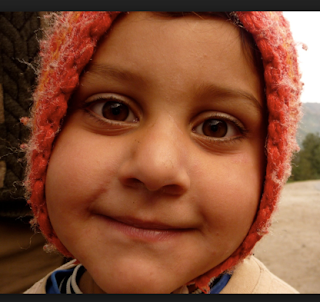I'm guessing we are all having some version of this experience with our students in the placements.
We see the ways our cooperating teachers plan what they teach, adapt according to how things go, make sure they are reaching all of their students the best they can given the time they have. I am very impressed with the flexibility and intelligence these teachers are bringing to their work.
I also see the students' innate and powerful curiosity about the things and people in their environment, their willingness to dive deeply into what interests them, and how they so often let their hearts and souls show on their faces. I'm studying how teachers try to balance the limitations of time and resources in the classrooms with the need to address these kids' soulfulness and depth.
Recently when we had a guest teacher at our placement, a kid was finished with a dictation they were being given, and it was important that the other children have a quiet atmosphere in which to finish theirs. The boy was whispering and laughing with his neighbor, so I asked him to come over to a side table. I gave him some paper and a pencil and told him to draw what the dictation sentence is about.
He started in, and did not look up until most of the other kids were out the door for recess. I was amazed at how quickly and how deeply he entered into this spontaneous project.
If even experienced, talented teachers barely have enough time to teach their students what they need to teach them, I want to learn the efficiencies that make depth of experience and personal connection with kids possible, as often as possible. I am noting them as I see them, but I would love others' observations about what they are seeing along these lines.



Great thoughts here. One thing I see teachers do successfully, and not so much, is ask their students personal questions. The successful teachers ask questions and wait for answers. If they have to cut off the answer for time reasons, they follow up later. They also find a way to remember what the students shared about themselves and use that all the time to stimulate academic discussion. Unsuccessful attempts stop at when questions are asked but interest in the answers appears limited or rushed. When I see this happening I know for sure the kid(s) do too. I see teachers who have been at the job longer (decade-plus) being highly successful at this. The newer teachers look like they're overthinking it. But hey, that's what we do when we're learning stuff: overthink.
ReplyDeleteOr, if you're like me, you overthink about everything all the time anyway, but you learn to make it work in your favor somehow.
Thanks for sharing :)